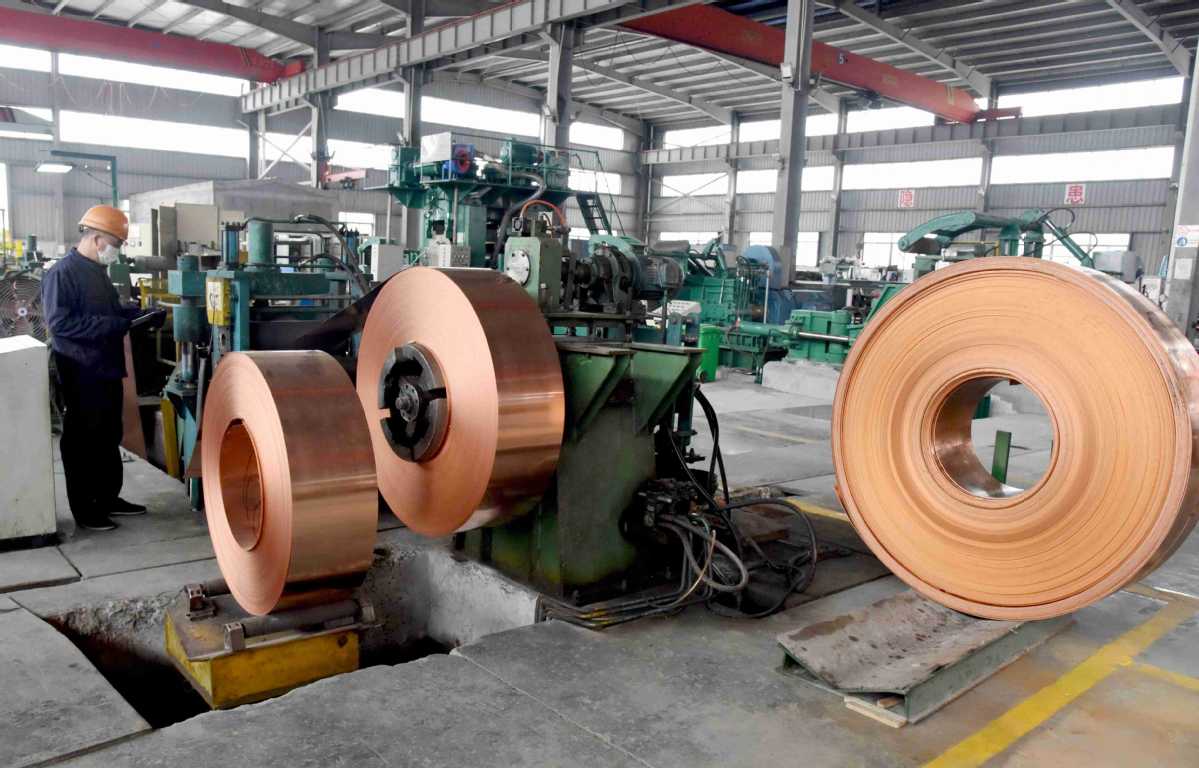Zero tolerance to speculation key to curbing commodity price rises
China Daily | Updated: 2021-05-27 07:27

The National Development and Reform Commission and four other departments recently held a meeting with some leading enterprises in the iron ore, steel, copper, aluminum and other industries, and some steel industry and nonferrous metal associations to reiterate that it has "zero tolerance" against dissemination of false information, speculative hoarding and other illegal activities used to hike the prices of commodities.
Since the beginning of this year, rising global commodity prices have increased the costs for China's manufacturing enterprises. The producer price index has repeatedly hit record highs to reach a 6.8 percent year-on-year high in April. As a result of increased costs, some downstream enterprises have had to stop production.
With most of the world's major economies yet to fully recover, the rise in global commodity prices, including those of metals, fuels and food, has been driven to a large extent by speculative capital following the release of excess liquidity by the United States Federal Reserve.
The supply-demand mismatch, or the faster recovery of demand over supply, is to blame for a rise in semiconductor chip and housing prices.
As the first major economy to largely recover from the outbreak of the novel coronavirus pandemic, China has increased investment, which, together with soaring exports by Chinese enterprises, has increased the demand for commodities.
The rise in prices of China's main upstream raw materials has been driven by domestic demand. However, the rapid rise in the prices of relevant commodities since the beginning of this year is largely a result of market speculation. Be it hoarding or manipulating the futures market, such activities by the unscrupulous businesspeople to take advantage of tight demand and supply relations to drive up prices must stop, or it will deal a serious blow to downstream manufacturing enterprises.
Compared with many Western countries that have responded to the outbreak through excessive money supply, China has adhered to a prudent monetary policy and adopted strict supervision of the real estate market to prevent speculative forces from triggering inflation and creating asset price bubbles. Next, it should continue to ensure supply while curbing excessive speculation.
In addition, a market supervision and law enforcement team should be set up to strengthen daily law enforcement of futures and spot markets and strengthen the rule of law for market management. Only with long-term strengthened market governance and supervision and "zero tolerance" for illegal activities, can speculative price rises be prevented.
























